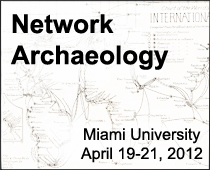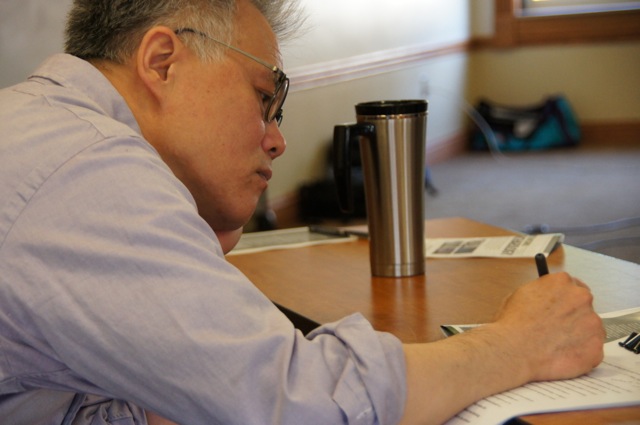Presentation by Briankle G. Chang (University of Massachusetts, Amherst).
If we could speak of network, as I am intending to do now, it is because we are already in the network we are speaking about. Taking this as its starting point, this paper seeks to draw out the implications of this observation as they bear on the archaeological project of the media, to which the theory and practice regarding network has been and will remain central. This paper begins by establishing two propositions as follows:
1. Any instance of a network—call it a node, a station, a relay, the sender/receiver, or whatever—is itself nothing but a network.
2. Before relaying anything, a network demands that there be network. Commanding its own demand through its operational workings, a network expands without limits, without the need for validation, constituting its own imperium, as it were, whose commands, as Jean-Francois Lyotard reminds, are either obeyed or not obeyed, but never canceled or negated.
By playing these two propositions against each other, I hope to make a case for what I call the performativity of network–a kind of work that networks perform according to the networks’ own arché. A brief comparative reflection on an historical event regarding the murder of the Roman Emperor Domitian and the failed assassination of the First Emperor of China will be offered to help demonstrate how media technologies–in this case, map making and early scroll making—produce opposing effects depending on how the event in question fits in with the historical network in which it is documented.
Briankle G. Chang is Associate Professor in the Department of Communication at University of Massachusetts, Amherst. He is the author of Deconstructing Communication: Representation, Subject, and Economies of Exchange (Minnesota, 1996) and co-editor of Philosophy of Communication (MIT Press, 2012).



